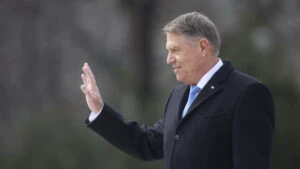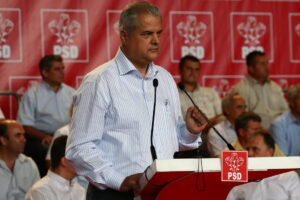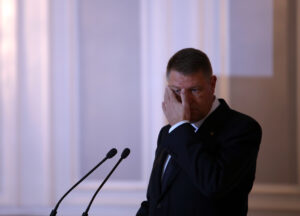„România il recunoaste pe presedintele interimar al Venezuelei, Juan Guaido” a anuntat vineri Administratia prezidentială.
Fără să iau apărarea regimului Maduro, mă intreb insă dacă acest gen de decizii nu va genera precedente periculoase. Asa cum s-a intâmplat cu recunoasterea statalitătii provinciei Kosovo (vezi apoi Crimeia, Abhazia, etc). Poate că, in viitor, Maduro ar putea recunoaste drept presedinte interimar al Frantei pe unul din liderii „vestelor galbene”. Nu vreau să continui cu astfel de ipoteze.
Recunoasterea este o institutie a dreptului international. Este vorba, in principal, de recunoasterea STATELOR. Ea are un caracter declarativ (in privinta existentei noului stat) si constitutiv (in privinta opozabilitătii acestei existente fata de statul care a făcut recunoasterea). La finalul Războiului Rece, in conditiile destrămării URSS si Iugoslaviei, Uniunea Europeană a adoptat o Declaratie in 5 puncte asupra liniilor directoare privind recunoasterea noilor state din Europa de Est si Uniunea Sovietică, adoptată la 16 decembrie 1991. In ceea ce priveste Kosovo, precizez că nu toate statele membre ale UE au recunoscut statalitatea acesteia. România, spre exemplu, a fost intre cele care nu au recunoscut.
Recunoasterea GUVERNELOR apare in situatia in care puterea intr-un stat este preluată de un guvern nou prin alte mijloace decât cele constitutionale sau când pe acelasi teritoriu de stat s-au format două guverne. Au existat mai multe doctrine ale recunoasterii guvernelor: Doctrina Jefferson(1792) – recunoaste orice guvern format in conformitate cu vointa poporului; Doctrina Tobar (1907) – refuza recunoasterea unui guvern ajuns la putere prin revolutie sau război civil până când tara nu este reorganizată in forme constitutionale in urma unor alegeri libere; Doctrina Estrada (1930) – nerecunoasterea noilor guverne ar reprezenta un amestec in treburile interne ale statelor in cauză (niciun guvern nu are dreptul să se pronunte asupra legitimitătii altui guvern). Recunoasterea guvernelor este mai curând o practică diplomatică in America latină.
Recunoasterea MISCĂRILOR DE ELIBERARE NATIONALĂ se face prin recunoasterea organelor lor de conducere.
Recunoasterea INSURGENTILOR vizează fie partea răsculată fie partea beligerantă intr-un război civil.
In ce situatie, dintre acestea, se află Venezuela? A fost poate o incercare de lovitură de stat dar care nu a reusit? Se poate vorbi de război civil si de insurgenti? Ce inseamnă presedinte INTERIMAR? A dispărut presedintele ales? A fugit in Rusia? Nu este periculos ca cineva din afară să numească un alt presedinte decât cel ales?
In opinia mea, ar trebui făcut un efort la Consiliul de Securitate pentru o solutie consensuală de obligare a regimului Maduro să accepte alegeri anticipate, sub control international, care să decidă viitorul tării. Probabil insă că noul Război rece va face imposibilă o astfel de solutie si vom asista la un nou „conflict inghetat”, la fel ca in Ucraina.
PS Iată articolul din Constitutia Venezuelei care stabileste când Presedintele Adunării nationale poate deveni presedinte interimar.
Article 233: The President of the Republic shall become perma- nently unavailable to serve by reason of any of the following events: death; resignation; removal from office by decision of the Supreme Tribunal of Justice; permanent physical or mental disability certified by a medical board designated by the Supreme Tribunal of Justice with the approval of the National Assembly; abandonment of his posi- tion, duly declared by the National Assembly; and recall by popular vote.
When an elected President becomes permanently unavailable to serve prior to his inauguration, a new election by universal suffrage and direct ballot shall be held within 30 consecutive days. Pending election and inauguration of the new President, the President of the National Assembly shall take charge of the Presidency of the Republic.
When the President of the Republic becomes permanently unavail- able to serve during the first four years of this constitutional term of office, a new election by universal suffrage and direct ballot shall be held within 30 consecutive days. Pending election and inauguration of the new President, the Executive Vice-President shall take charge of the Presidency of the Republic.
In the cases describes above, the new President shall complete the current constitutional term of office. If the President becomes perma- nently unavailable to serve during the last two years of his constitu- tional term of office, the Executive Vice-President shall take over the Presidency of the Republic until such term is completed.
Article 234: A President of the Republic who becomes temporari- ly unavailable to serve shall be replaced by the Executive Vice-
President for a period of up to 90 days, which may be extended by res- 83 olution of the National Assembly for an additional 90 days.
If the temporarily unavailability continues for more than 90 con- secutive days, the National Assembly shall have the power to decide by a majority vote of its members whether the unavailability to serve should be considered permanent.
Article 235: The absence of the President of the Republic from the territory of Venezuela requires authorization from the National Assembly or the Delegated Committee, when such absence continues for a period exceeding five consecutive days”, scrie Andrian Năstase pe site-ul său.





